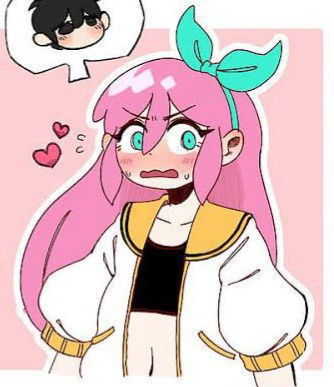Within the broad category of dark anime male characters, several sub-archetypes emerge, each with its unique flavor of brooding intensity:
The Tragic Anti-Hero
These characters are often defined by immense suffering in their past. Perhaps they lost loved ones, were betrayed by those they trusted, or were subjected to horrific experiments. This trauma shapes their worldview, making them cynical, distrustful, and prone to isolation. Yet, beneath the hardened exterior, a flicker of their former self, or a yearning for connection, often remains.
Consider Guts from Berserk. His life is a relentless cycle of violence and despair, marked by the betrayal of his closest companion, Griffith, and the horrific ordeal of the Eclipse. Guts wields the Dragonslayer, a colossal sword, as an extension of his rage and his will to survive. His journey is one of pure vengeance, a desperate fight against the forces of darkness that have consumed his life. Despite the overwhelming odds and the constant torment, Guts's refusal to surrender, his unwavering determination to protect those he cares about, makes him an enduring symbol of resilience. His internal monologue often reveals a profound weariness, a longing for peace that he knows he may never attain. The sheer physical and emotional toll of his existence is palpable, making his continued fight all the more heroic.
Another example is Itachi Uchiha from Naruto. His story is one of profound sacrifice and moral compromise. To prevent a coup and protect his village, Itachi annihilated his entire clan, including his parents, and then became a rogue ninja, branded a traitor. He endured years of ostracism and hatred, all while harboring the immense burden of his actions and his true motives. His calm, detached demeanor masked a deep well of pain and regret. Itachi's complexity lies in the fact that his "dark" actions were ultimately driven by a desire for peace and the protection of the greater good, albeit through extreme means. His final battle with his brother, Sasuke, is a masterclass in conveying unspoken emotion and the weight of a lifetime of deception.
The Morally Ambiguous Antagonist
These characters blur the lines between hero and villain. They may possess noble goals but employ ruthless or unethical methods to achieve them. Their motivations are often understandable, even sympathetic, but their actions are undeniably questionable. They force viewers to confront the uncomfortable truth that sometimes, the "bad guys" have a point, or that the path to hell is paved with good intentions.
Light Yagami from Death Note is a prime example. Possessing the Death Note, a supernatural notebook that allows him to kill anyone whose name he writes in it, Light embarks on a mission to rid the world of criminals and create a utopian society free from evil. He believes he is a god, dispensing justice with an unshakeable conviction. However, his descent into megalomania, his willingness to kill innocent people who stand in his way, and his utter detachment from human empathy reveal the corrupting nature of absolute power. Light is a fascinating study in how a desire for justice can warp into tyranny. His intellectual prowess and his unwavering belief in his own righteousness make him a formidable and chilling antagonist.
Then there's Lelouch Lamperouge from Code Geass. As the masked revolutionary Zero, Lelouch leads a rebellion against the tyrannical Holy Britannian Empire, seeking to create a more just world for his oppressed homeland, Japan. He wields the power of Geass, which allows him to command anyone to do his bidding. Lelouch is brilliant, charismatic, and utterly ruthless. He is willing to sacrifice countless lives, manipulate his allies, and engage in acts of terrorism to achieve his ultimate goal. His internal struggle between his desire for a better world and the morally reprehensible means he employs is the driving force of the series. Lelouch represents the ultimate anti-hero, a figure who achieves a noble end through profoundly dark means, leaving audiences to question whether his sacrifices were worth the cost.
The Brooding Loner
These characters are often solitary figures, preferring their own company and keeping others at arm's length. Their isolation can stem from a fear of getting hurt, a belief that they are a danger to others, or simply a profound introversion. Despite their aloofness, they often possess a hidden capacity for loyalty and affection, which they reveal only to a select few.
Levi Ackerman from Attack on Titan embodies this archetype. Known as "humanity's strongest soldier," Levi is a master combatant, efficient and deadly. He is stoic, often appearing emotionless, and his past is shrouded in mystery, hinting at a life of hardship and loss. He leads the Special Operations Squad, a group of elite soldiers, with a gruff but ultimately protective demeanor. Levi's dedication to his comrades and his unwavering resolve in the face of overwhelming odds, even when faced with immense personal tragedy, showcase his deep-seated sense of duty and his hidden compassion. His blunt honesty and his no-nonsense attitude are a stark contrast to the often melodramatic pronouncements of other characters, making his rare moments of vulnerability all the more impactful.
Another compelling example is Spike Spiegel from Cowboy Bebop. A former member of the Red Dragon crime syndicate, Spike is a bounty hunter haunted by his past and the loss of his love, Julia. He drifts through the solar system with his crew aboard the Bebop, taking on dangerous jobs. Spike is cool, laid-back, and seemingly detached, but his past constantly catches up with him. His fighting style is fluid and graceful, reflecting his inner turmoil and his acceptance of his own mortality. Spike's existential musings and his search for meaning in a bleak future resonate with many viewers. His iconic line, "Bang," delivered with a finger gun, encapsulates his fatalistic acceptance of his destiny.

